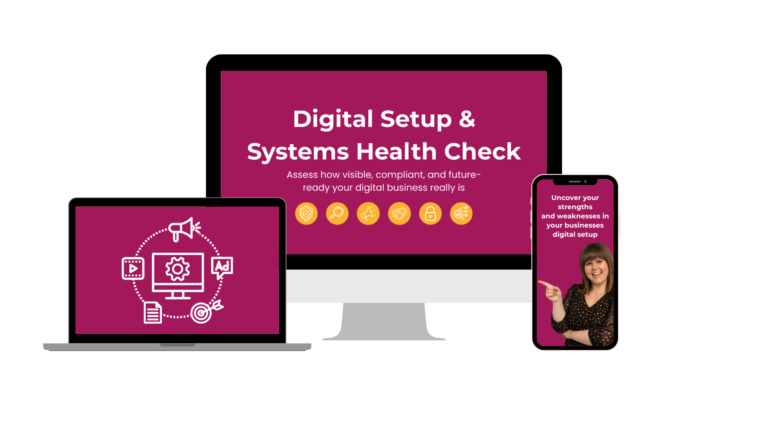In the modern digital era, online scams have proliferated, presenting a substantial risk to both individuals and organizations. Online scams are defined as fraudulent schemes executed via the internet, designed to deceive victims for monetary gain. These deceptive practices manifest in various forms, such as phishing attacks, identity theft, fraudulent websites, and investment scams.
The widespread adoption of the internet for communication, e-commerce, and financial transactions has provided scammers with novel and sophisticated methods to exploit unsuspecting users. Consequently, it is essential for internet users to familiarize themselves with common online scam types, recognize potential warning signs, and implement strategies to protect themselves from these fraudulent activities.
Key Takeaways
- Online scams are becoming increasingly common and can target anyone using the internet.
- Common types of online scams include phishing, fake websites, and romance scams.
- Warning signs of online scams include unsolicited requests for personal information and offers that seem too good to be true.
- Tips for avoiding online scams include being cautious with personal information and verifying the legitimacy of websites and offers.
- If you’ve fallen victim to an online scam, it’s important to report it to the appropriate authorities and take steps to protect yourself from further harm.
Common Types of Online Scams
Phishing Scams: Don’t Take the Bait
Phishing scams involve the use of fraudulent emails, text messages, or websites to trick individuals into providing sensitive information such as passwords, credit card numbers, or social security numbers. These messages often appear to be from legitimate sources, such as banks or government agencies, and may contain urgent requests for personal information.
Identity Theft: Safeguard Your Personal Information
Identity theft occurs when a scammer steals an individual’s personal information, such as their name, address, social security number, or credit card details, and uses it for fraudulent purposes. This can lead to financial loss and damage to the victim’s credit score.
Fake Websites and Investment Fraud: Be Cautious Online
Scammers create fake websites that mimic legitimate online retailers or financial institutions in order to deceive users into making purchases or providing financial information. These websites may appear authentic at first glance but often have subtle differences that can be identified upon closer inspection. Additionally, online investment fraud involves the promotion of false or misleading investment opportunities through fake websites, social media, or unsolicited emails. Scammers may promise high returns with little to no risk, leading victims to invest their money in fraudulent schemes.
Warning Signs of Online Scams

a) Unsolicited Requests for Personal Information: Be wary of unsolicited emails, text messages, or phone calls that request sensitive personal or financial information. Legitimate organizations will not ask for this information through unsecured channels. b) Pressure to Act Quickly: Scammers often create a sense of urgency in their communications in order to pressure victims into making hasty decisions.
Be cautious of messages that demand immediate action or threaten negative consequences for not complying. c) Suspicious Links or Attachments: Avoid clicking on links or downloading attachments from unfamiliar or suspicious sources. These may contain malware or lead to fake websites designed to steal your information.
d) Too Good to Be True Offers: If an offer seems too good to be true, it probably is. Be skeptical of promises of high returns with little risk, free giveaways, or extremely discounted prices.
Tips for Avoiding Online Scams
a) Verify the Legitimacy of Websites: Before making any online purchases or providing personal information, verify the legitimacy of the website by checking for secure connections (https://), reading reviews, and looking for contact information and a physical address. b) Use Strong Passwords and Two-Factor Authentication: Protect your online accounts by using strong, unique passwords and enabling two-factor authentication whenever possible. This adds an extra layer of security to prevent unauthorized access.
c) Educate Yourself: Stay informed about the latest online scams and fraud tactics in order to recognize warning signs and protect yourself from falling victim. Many government agencies and consumer protection organizations provide resources and updates on common scams. d) Trust Your Instincts: If something feels off or too good to be true, trust your instincts and proceed with caution.
Take the time to research and verify any offers or requests before taking action.
What to Do If You’ve Fallen Victim to an Online Scam
If you believe you have fallen victim to an online scam, it is important to take immediate action to minimize the impact and prevent further harm. Here are some steps you can take: a) Contact Your Financial Institutions: If you have provided financial information to a scammer, contact your bank or credit card company immediately to report the incident and prevent unauthorized transactions. b) Change Your Passwords: If you suspect that your online accounts have been compromised, change your passwords immediately to prevent further unauthorized access.
c) Report the Scam: Report the scam to the appropriate authorities, such as the Federal Trade Commission (FTC), your local consumer protection agency, or the Internet Crime Complaint Center (IC3). Providing as much detail as possible about the scam can help authorities investigate and prevent future incidents. d) Monitor Your Credit Report: Keep a close eye on your credit report for any suspicious activity or unauthorized accounts opened in your name.
You can request a free credit report from each of the three major credit bureaus once a year.
Reporting Online Scams

Reporting online scams is crucial in helping authorities track down scammers and prevent them from victimizing others. There are several organizations and agencies that you can report online scams to: a) Federal Trade Commission (FTC): The FTC is a leading agency in the fight against consumer fraud and provides a platform for reporting scams and identity theft. You can file a report on their website or call their toll-free hotline.
b) Internet Crime Complaint Center (IC3): The IC3 is a partnership between the FBI and the National White Collar Crime Center that accepts online Internet crime complaints from either the person who believes they were defrauded or from a third party to the complainant. c) Consumer Protection Agencies: Many states have consumer protection agencies that accept reports of online scams and provide resources for victims. Check with your state’s attorney general’s office or consumer protection agency for more information.
d) Better Business Bureau (BBB): The BBB accepts complaints about businesses and provides a platform for consumers to report scams and fraudulent activities. They also provide resources for consumers to research businesses and avoid potential scams.
Conclusion and Resources for Further Assistance
In conclusion, online scams continue to pose a significant threat to individuals and businesses, but by being aware of common types of scams, recognizing warning signs, and following best practices for online security, you can reduce your risk of falling victim to fraudulent activities. If you believe you have been targeted by an online scam, it is important to take immediate action by reporting the incident to the appropriate authorities and taking steps to protect yourself from further harm. For further assistance and resources on online scams, you can visit the websites of organizations such as the Federal Trade Commission (FTC), Internet Crime Complaint Center (IC3), Better Business Bureau (BBB), and your state’s attorney general’s office or consumer protection agency.
These organizations provide valuable information on common scams, reporting tools, and steps you can take to protect yourself from falling victim to online fraud. Additionally, staying informed about the latest scams through reputable news sources and consumer protection websites can help you recognize warning signs and avoid potential threats in the future. By taking proactive measures and staying vigilant, you can protect yourself from falling victim to online scams and contribute to the fight against cybercrime.
If you’re looking to enhance your digital skills to protect yourself from online scams, you may want to check out Technology Coaching Online’s digital skills courses. Their course on innovation can help you stay ahead of the curve and spot potential scams before they happen. Learn more about their digital skills courses here.
FAQs
What are online scams?
Online scams are fraudulent schemes that deceive individuals into providing personal information, financial details, or money through the internet. These scams can take various forms, such as phishing emails, fake websites, or social media scams.
How can I spot an online scam?
You can spot an online scam by being cautious of unsolicited emails or messages, verifying the legitimacy of websites before making any transactions, and being wary of offers that seem too good to be true. Look out for spelling and grammar errors, requests for personal information, and suspicious links.
What are common types of online scams?
Common types of online scams include phishing scams, where scammers impersonate legitimate organizations to obtain personal information, and fake online shopping websites that never deliver the purchased items. Other scams include romance scams, investment scams, and lottery scams.
How can I avoid falling for an online scam?
To avoid falling for an online scam, it’s important to be cautious of unsolicited communications, never provide personal or financial information to unverified sources, and always verify the legitimacy of websites and offers before making any transactions. Additionally, use strong, unique passwords for online accounts and enable two-factor authentication when available.
What should I do if I think I’ve been targeted by an online scam?
If you believe you’ve been targeted by an online scam, it’s important to report the incident to the appropriate authorities, such as the Federal Trade Commission (FTC) in the United States or the relevant consumer protection agency in your country. Additionally, you should change any compromised passwords and monitor your financial accounts for any unauthorized activity.



